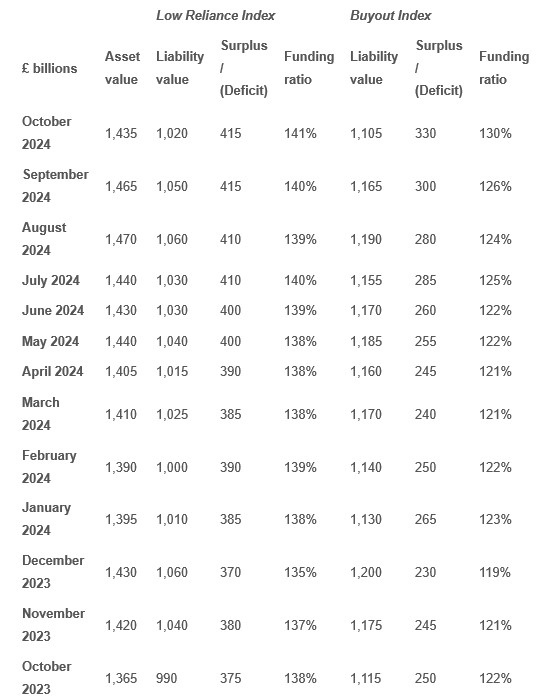Meanwhile, PwC’s Low Reliance Index has remained stable with a substantial surplus of £415bn. The Low Reliance Index tracks the position of the UK’s DB schemes based on a low-risk income-generating investment strategy, which should mean the pension scheme would be unlikely to call on the sponsor for further funding.
With funding levels remaining strong following the 2024 Autumn Budget, the focus of the pensions industry turns to the Chancellor’s maiden Mansion House speech which is expected on 14 November.
Gareth Henty, PwC UK Head of Pensions, said: “Although there were some significant implications for pensioners and their financial planning in the 2024 Autumn Budget, mainly in terms of inheritance tax, overall the Budget was perhaps quieter on the pensions front than many expected. The same can’t necessarily be said for the funding level of the UK’s defined benefit schemes, which hit another record level this month in light of rising gilt yields and attractive insurer pricing. That’s not to say pension change is not on the horizon. In fact, it leaves the door open for more fundamental and holistic changes to UK pensions. The Chancellor has already indicated that plans for the UK pensions industry will be a key focus of her Mansion House speech next week, so this could be when we see the first steps of a more significant pensions overhaul.”
Keira-Marie Ramnath, Head of Investments at PwC, added: “Many are hoping that the upcoming Mansion House speech will provide meaningful insight into the Government’s views on how pension assets may be used for investment in productive finance and UK growth opportunities. If even a relatively small portion of surplus assets can be unlocked, this could be a significant boost to UK businesses and the economy, while enabling pension schemes to make sure that they are generating the positive real returns needed to pay benefits for their members. More fundamentally however, the UK needs to be more attractive for investment as returns in the UK market have lagged global counterparts. It will be interesting to see whether the Chancellor will offer any incentives for schemes to invest in UK businesses or capital projects - these might be needed to make sure that the UK is a sufficiently attractive investment proposition for pension schemes. It’s no easy feat and the Government will have to balance their desire for increased investment from pension schemes in UK productive assets with their borrowing needs. DB pension schemes continue to be significant investors in the gilt market and getting the balance right is tricky, particularly in a market where assets are flowing towards insurance. It would not be surprising if the Government looks to local government pension schemes for support.”
The PwC Low Reliance Index and PwC Buyout Index figures are as follows:

|

